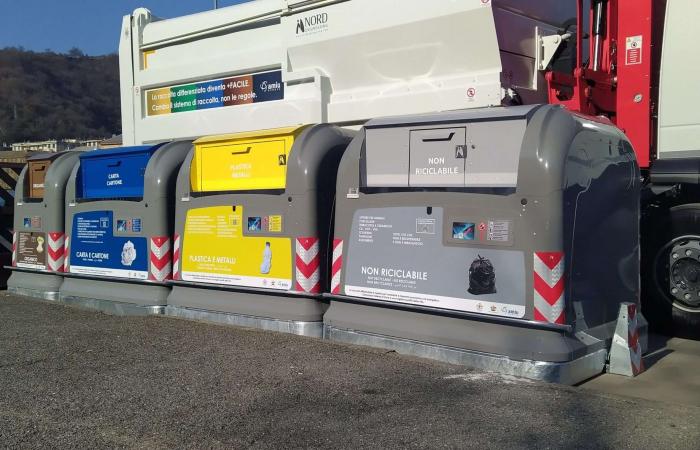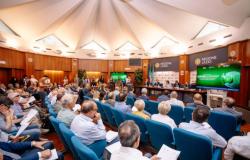Separate waste collection in Liguria in 2023 reached almost 60%, up from 57.64%. The figure, however, could be higher: excluding the Municipality of Genoa, Liguria would exceed the target of 65% (65.94%), but the performance of the Ligurian capital, whose separate waste collection is at 47.02%, drags below the rest of the region.
This is what emerges from the consolidated data ascertained by the Liguria Region and approved through a council resolution, on the proposal of the waste cycle councilor Giacomo Giampedrone.
In total they are 139 municipalities have exceeded the 65% threshold of separate waste collection and who will be entitled, starting from July, to the tax relief for the disposal of the residual fraction to landfill, divided into result bands, with savings from 30% to 70% on the basic amount.
Specifically, the overall percentage of 2023 separate waste collection in the Ligurian territory is equal to 59.35% constantly increasing compared to 57.64% of the previous year, to 55.71% in 2021, to 53.46% in 2020, with an increase of 21 percentage points more than the 38.63% of 2015.
At the provincial level, it La Spezia maintains its lead with separate waste collection which has further increased to 76.21% followed by Savona with 63.05%, a substantially stable figure compared to the previous year. This is followed, with an increase of two percentage points compared to 2022, by the province of Imperia which arrives at 57.12% and the Metropolitan City of Genoawhich reaches the 53.84%: affecting this last figure, as mentioned, is the result of the Municipality of Genoa which in any case grows significantly up to 47.02%, compared to 43.46% of the previous year. Excluding the Municipality of Genoa, Liguria would exceed the target of 65% (65.94%), while the rest of the Metropolitan City would already be at 68.14%.
The municipalities with a percentage of waste separation exceeding 80%: Riccò del Golfo (also leader for 2023 with 89.85%), Pieve Ligure (86%), Vendone (84.58%), Rialto (83.68%), Mignanego (82.810%), Sant’Olcese (82.36%), Ortovero (82.32%), Luni (82.31%), Cairo Montenotte (82.06%), Castelnuovo Magra (81.55%), La Spezia (81.37%), Leivi (81.35%), Framura (81.29%), Vessalico (81.08%), Villanova d’Albenga (80.75%), Carrodano (80.70%), Ceranesi (80.62%) and Serra Riccò (80.36%).
“An undoubtedly important result, the result of a constant commitment on the part of the regional administration on a delicate and relevant topic for the future of all of us and our territory such as that of waste management – comments the interim president of the Liguria Region Alessandro Piana – The work carried out by the Region was fundamental, but obviously the work carried out by the Municipalities and citizens is equally important, thanks to whose collaboration we are continuing on this virtuous path”.
“We are very satisfied with the work we are carrying out together with the municipal administrations with the fundamental support of citizens who are increasingly attentive to the correct disposal of waste – he declares James Giampedrone -. To date, 139 Municipalities have reached and exceeded the 65% percentage of separate waste collection: there were 32 in 2015. These data confirm the validity of the approach started 9 years ago, with the Region alongside the Municipalities most in difficulty compared to to a radical change of approach and culture in cycle management. The results are evident. We will continue on this virtuous path convinced that we can improve further also thanks to the implementation of the Regional Plan which, for the first time in the history of Liguria, aims to close the cycle to ensure the self-sufficiency of our region in waste management”.
Between municipalities with over 15 thousand inhabitants have exceeded 65% of separate waste collection the municipality of La Spezia (81.37%) followed by Albenga (75.04%), Sestri Levante (73.20%), Imperia (68.78%), Chiavari (68.52%) and Sarzana (65.54 %).
Slight decline for Rapallo and Sanremo, falling respectively to 62.63% and 58.81%, while, although improving, Genoa (47.02%), Savona (43.76%) and Ventimiglia (28.40%) remain at the bottom %).
It starts to rise again, albeit very slightly total production of urban wastewhich stands overall at 804,972 tonnes against the 803,108 tonnes of the previous year.
As for the sole residual undifferentiated fraction, the municipalities that have a per capita of less than 100 kg/inhabitant per year drop to 53, compared to 60 in the previous year. Of these there are 8 that do not even reach 60 kilos per inhabitant per year: the most virtuous is Ricco del Golfo, with only 40 kg/inhabitant per year of unsorted waste to dispose of, which has displaced Vendone which still follows at 44 kg / inhabitant year.
The resolution also establishes the economic contribution to be paid by September to the 63 Municipalities in which an excess of undifferentiated waste was found compared to the set targets: overall contributions drop from around 425 thousand euros to just over 367 thousand euros (-13.5%).
Most of the contribution to be paid is due by the Municipality of Genoa (251,948.98 euros compared to 303,710.81 euros in 2022). Followed by the Municipalities of Savona (33,139.98 euros compared to 35,121.89 euros on a 2021 basis) and Ventimiglia (26,780.34 compared to 29,764.68). Then there are only 11 other municipalities required to pay more than 1,000 euros, while another 49 municipalities will have to pay amounts lower than 1,000 euros.







